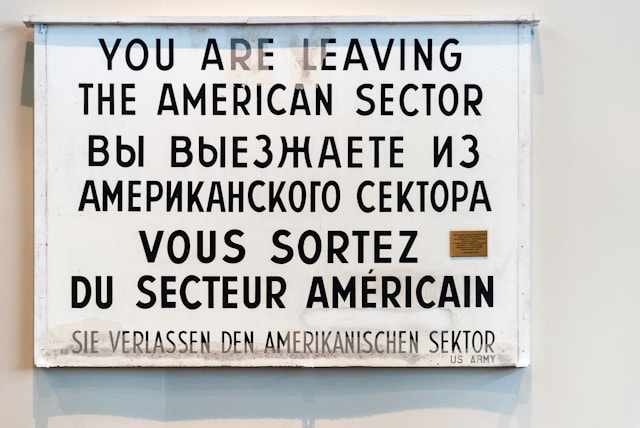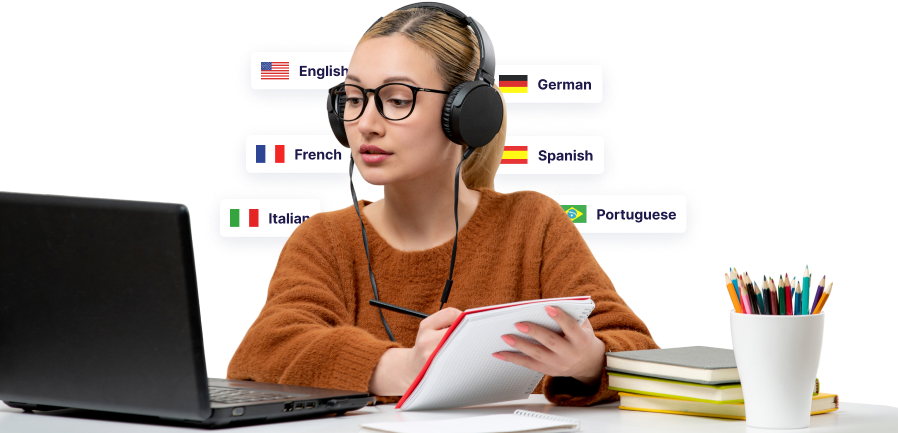Rapid Translate Team
Multilingual people agree that translation is an exciting exercise. It is also quite lucrative when you do it as a business. However, being multilingual alone does not qualify you as a professional translator. You must get translation studies to attain this qualification.
You can get this education in many higher learning institutions. But what do you learn from these studies? This article explores everything you need to know about studies in translation.
Keep reading to find the right path to becoming a translation professional!

Table of Contents
What Is the Study of Translation?
Translation studies is an academic discipline that systematically studies the description, theory, and application of translation, interpretation, and localization.
As an inter-discipline, this study draws from other fields of knowledge, such as comparative literature, semiotics, linguistics, and computer science.
Translation study supports the development of students’ analytic, evaluative, and expository skills necessary to overcome translation problems. It teaches them good research and practical translation skills to help them navigate complex linguistic and cultural nuances.
When studying translation, students learn key translation theories and practical translation methods. These inform their decisions and refine their skills to pursue successful careers in translation and the language service industry.
Thus, studying translation is a key step for anyone asking how to become a translator.
Translation Theory: Learning the Key Theories in Translation Study
Many theories exist in the translation discipline. These theories help you discern the most appropriate method to employ for a translation task. They also provide a rule framework for translations and strategies to handle nuances.
That is why they teach the key theories of translation in translation studies. In fact, you cannot become a professional without learning translation theory.
Below are the eight key translation theories and what they’re about:
- Philological theory: covers structure comparison in the source and target languages. It also factors in functional correspondence, literary genres, and rhetorics.
- Philosophical theory: deals with the semantic transfer of information from the source to the target language.
- Linguistic theory: focuses on the linguistic structures when translating from the source to the target language. It governs the faithful translation.
- Translational Action theory views translation as message transmission. It considers translation an exercise driven by purpose toward a desired product.
- Skopos theory: adopts a more informal, functional, and socio-cultural-oriented concept of translation.
- Polysystem theory: is a model for understanding and describing the evolution of literary systems and its application in translated literature.
- Sociolinguistic theory: links translation to communication and information theories. It especially emphasizes the receptor’s role in translation.
- Functional theory: combines and absorbs the skopos and translational action theories alongside the text-analysis model.
For simplicity, scholars further compress these theories into three comprehensive translation theories:
- The theory of translating: this views translation as a process.
- The theory of translated texts: this views translation as a product.
- The theory of translating and translating texts: this views translation as a process and a product.

Popular Translation Methods
Professional translations are not random word conversions. Language experts produce them following certain methods and techniques. You’ll learn these translation methods and techniques and their applications when studying translation.
Below are some common translation methods you’ll learn:
- Literal translation
- Faithful translation
- Semantic translation
- Adaptative translation
- Idiomatic translation
- Free translation
- Communicative translation
How To Get a Degree in Translation and Translation Studies
You can get a degree in translation from any higher institution offering translation studies. Your translation degree is the first step to certification as a professional translator.
Unlike many professional disciplines, you don’t need specific high school subjects to enroll for this degree. It is an inter-discipline that teaches you all you need to know, regardless of your foundational knowledge.
However, you can also become a translation professional without a degree in these studies. If you’re wondering how to become a translator without a degree, it’s easy. You only need certification to become a professional translator, and you can get that without a translation degree.
For example, you can take an online course or get a diploma in translation. Your course or diploma will allow you to become a certified translator.
You can also get this certification through translator’s exams organized by reputable translation organizations like the American Translators Association (ATA). If you’re multilingual and can pass their exams, they’ll certify you as a professional translator.

How To Get a Masters in Translation and Interpretation
Like your translation degree, you can only get a masters in translation and interpretation from an institution of higher learning. Many popular universities like Harvard offer a master’s degree in this discipline.
After obtaining your bachelor’s degree in translation, you could pursue a master’s in the discipline. A master’s degree will open more career opportunities in the language service industry and beyond.
Career Opportunities After a Translation Program
If you’re considering a translation program, you may want to know the prospect after completing the course. Fortunately, there are many career opportunities for translation professionals in the language service and business industries.
Consider some career paths you could explore after your program:
- You can become a translator by working with a translation agency or company.
- You could become a freelance translator.
- You can offer interpretation services in the legal industry.
- You can become a localization expert.
- You can become a language consultant.
- You could work with multinational companies for marketing.
- You can work as a cultural liaison.
- You would excel working in the tourism industry.

FAQ
There is still much to learn about studying translation, but we’ve covered the basics. Now, let’s answer some frequently asked questions on the subject.
Is translation studies a good major?
Yes, it is a good discipline to major in when pursuing higher education. It is exciting to study and offers lucrative career opportunities.
Are translation studies hard?
No, studying translation is not difficult. Instead, it is an exciting course, especially for multilingual students. As an interdisciplinary course, it offers a variety of learning that creates a rich study experience.
What is the aim of translation studies?
This course aims to equip students to handle translation tasks appropriately. It achieves this by developing the students’ analytic, expository, research, and practical translation skills.
Get Quality Translation From Certified Translators at Rapid Translate
If you’re wondering how to become a certified translator, you now know where to begin. Similarly, if you want to get certified translation, you now know to look for professionals with degrees in translation studies.
Choose Rapid Translate for precise, accurate, and reliable translations. This agency uses human translators to produce certified translations for official processes. Its professional translators are certified in specific language pairs.
Rapid Translate services are affordable and reliable. Order now to work with experienced and professional translators!













